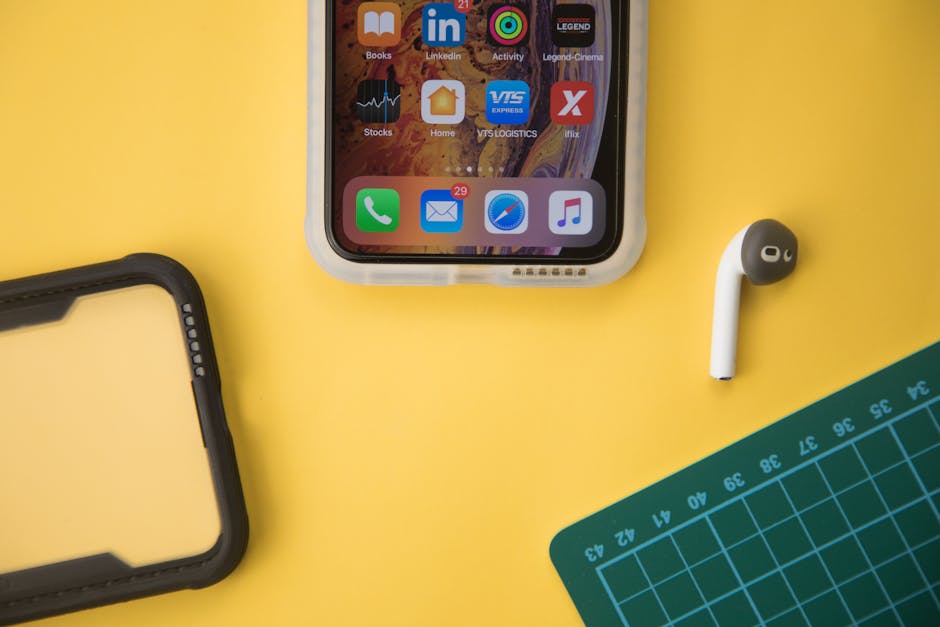How to Use Encrypted Messaging Apps for Secure Communication
Encrypted messaging apps have become a go-to solution for secure communication, offering robust protection against eavesdropping and unauthorized access. By employing advanced encryption techniques, these apps ensure that only the intended recipients can read the messages, safeguarding privacy in an increasingly digital environment. Understanding how to effectively use these tools is crucial for anyone looking to maintain confidentiality in their communications.

Understanding Encryption
Encryption is a method of converting plain text into coded text, which can only be deciphered by someone with the appropriate decryption key. This technology is the backbone of encrypted messaging apps like Signal, WhatsApp, and Telegram. These apps use end-to-end encryption, meaning the message is encrypted on the sender's device and only decrypted on the recipient's device.
One of the most widely used encryption protocols is the Signal Protocol, developed by Open Whisper Systems. It ensures that even if someone intercepts your message, they cannot read it without the decryption key. WhatsApp and Facebook Messenger have adopted this protocol to enhance security.
In addition to end-to-end encryption, some apps offer features like disappearing messages and encrypted backups to further protect user data. For instance, Telegram allows users to set a timer for messages to self-destruct after a specified period.
Choosing the Right App
Selecting the right encrypted messaging app depends on various factors including user-friendliness, security features, and platform compatibility. Here are some popular options:
- Signal: Known for its strong security and open-source code.
- WhatsApp: Offers widespread adoption and end-to-end encryption.
- Telegram: Provides cloud-based messaging with optional end-to-end encryption for secret chats.
Signal is often recommended for its transparency and robust security measures. It is open-source, allowing experts to inspect its code for vulnerabilities. WhatsApp, owned by Meta Platforms Inc., offers convenience with its integration into social media ecosystems but has faced scrutiny over privacy concerns despite its encryption features.
Telegram offers flexibility with its mix of cloud-based storage and end-to-end encrypted secret chats. However, it’s worth noting that regular chats on Telegram are not end-to-end encrypted by default.
Practical Tips for Secure Communication
Using encrypted messaging apps effectively involves more than just downloading them. Here are some practical tips:
- Enable Two-Factor Authentication (2FA): Adding an extra layer of security beyond just passwords can significantly enhance your account's protection.
- Verify Contacts: Most apps allow you to verify contacts' identities through unique security codes or QR codes, ensuring you're communicating with the intended person.
- Avoid Public Wi-Fi: Using public Wi-Fi networks can expose you to potential cyber-attacks. Always use a secure network or a VPN when accessing your messaging apps.
Two-factor authentication (2FA) adds an additional layer of security by requiring a second form of verification before granting access to your account. For example, after entering your password, you might need to input a code sent to your phone.
Verifying contacts involves confirming that the person you’re communicating with is indeed who they claim to be. Apps like Signal offer simple ways to verify through QR codes or unique security numbers.
Privacy Considerations
While encrypted messaging apps provide a high level of security, it’s essential to be aware of privacy settings and data collection practices. Some apps collect metadata—information about who you communicate with and when—which can be valuable for advertisers or other third parties.
For example, while WhatsApp uses end-to-end encryption for message content, it collects metadata such as phone numbers and usage patterns. Signal minimizes data collection by only storing information necessary for app functionality, such as phone numbers used for registration.
| App | Encryption Type | Data Collection |
|---|---|---|
| Signal | End-to-End | Minimal (Phone Number) |
| End-to-End | Metadata (Phone Number, Usage Patterns) | |
| Telegram | Optional End-to-End (Secret Chats) | User Data (Contacts, Messages in Cloud) |
Understanding what data is collected and how it’s used helps you make informed decisions about which app best suits your privacy needs. Always review the privacy policy and terms of service before committing to an app.
The use of encrypted messaging apps is an effective way to ensure secure communication in our daily interactions. From understanding how encryption works to choosing the right app and employing practical tips, these steps collectively enhance privacy and security. As technology evolves, staying informed about new features and potential vulnerabilities becomes increasingly important. Always prioritize using trusted sources and verified contacts when communicating sensitive information. While no system is entirely foolproof, using encrypted messaging apps correctly can significantly reduce risks associated with digital communication.